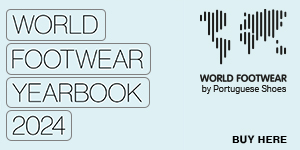Bangladesh Central Bank lowers export incentives

Bangladesh has announced cuts to export incentives in almost all sectors as the country prepares to exit Least Developed Country status in 2026. The leather industry is one of the hardest hit
The country’s central bank has begun a process of withdrawing cash incentives in preparation for a post-Least Developed Country era in 2026, in line with World Trade Organisation rules that prohibit such incentives once a country leaves that group. This decision was met with an outcry from key export industries, including leather and apparel, as incentives for leather products were reduced from 10% to zero, while those for ready-made garments were reduced from 1% to 0.5%.
“The government repeatedly pushed us for increased export so that they could cut their dependency on one product [referring to ready-made garments]. But now they have completely cut incentives on leather. It's baffling”, commented Shaheen Ahmed, president of the Bangladesh Tanners Association (BTA), as quoted by Nikkei Asia.
On the other hand, Siddiqur Rahman, a former president of the Bangladesh Garment Manufacturers and Exporters Association (BGMEA), insisted that the government did not need to do this at a time when manufacturers are struggling with wage increases, weakening international orders and volatile currencies.
However, the government argues that it’s better to prepare exports gradually, as its hands will be tied once Bangladesh loses its LDC status in 2026, a United Nations classification that exempts the poorest nations from tariffs on exports to developed countries. A.H.M. Ahsan, vice chairman of the Export Promotion Bureau, added that the government was exploring alternative ways to help industries pursue their strategic goals.
Bangladesh has been granting cash incentives ranging from 1% to 20% of the export value of 43 products. From now on, the total range of incentives will be from 0.5% to 15%, with only four sectors - diversified jute products, vegetables, fruits and agro-processed products, potatoes, and halal meat and processed meat exporters - qualifying for the highest rate (previously it was 20%).
Image Credits: thefinancialexpress.com.bd



















